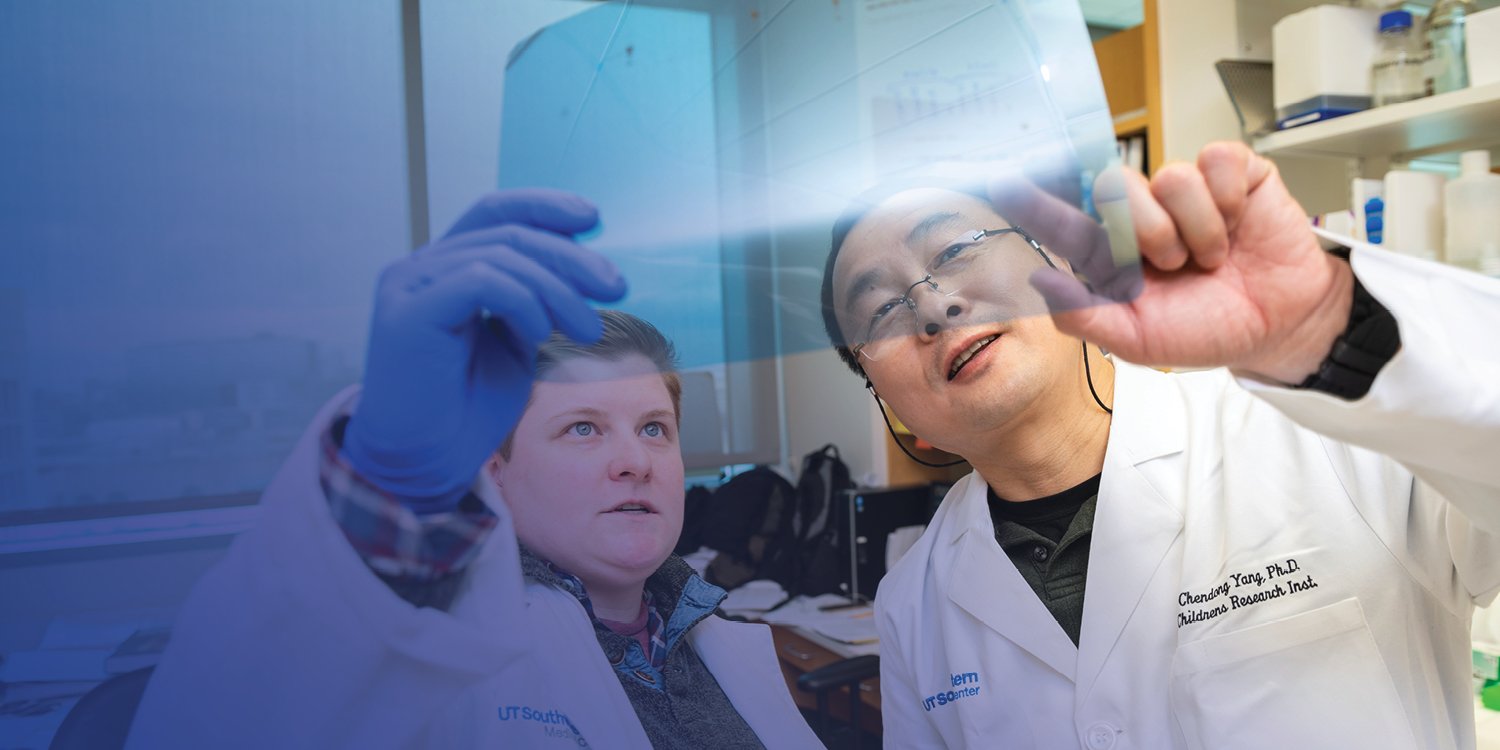
CUREs
The Road to Discovery
The most exciting aspect of research at Children’s Health℠ isn’t just helping our families and patients who participate in studies today, but the ability to benefit all children afflicted by the same conditions — today and in the future.
Clinical research helps scientists better understand diseases; chronic conditions and injuries; and can lead to the development of new medicines, treatments, or approaches to caring for patients.
Philanthropy fuels new areas of research not presently funded by external entities; supports important, life-saving studies that are nationally and locally underfunded; and provides pilot funding that helps researchers successfully apply for larger, future grants such as from the National Institute for Health.
Seed and bridge funding for clinical research allowed the Children’s Clinical Research Advisory Committee (CCRAC) to launch studies with greatest potential and merit, as well as mentor early-career investigators to strengthen research objectives and approaches even further.
Philanthropy has granted clinical researchers the opportunity to respond to urgent and unforeseen needs, such as performing critical research on viruses like COVID-19 and its current and long-term implications on the health of children.
BELOW IS A LIST OF JUST SOME OF THE CLINICAL RESEARCH STUDIES THAT WERE LAUNCHED
OR ADVANCED BY PHILANTHROPY IN 2021.
Currently, there are more than 1,200 active research studies at Children’s Health, with nearly 13,000 patients enrolled. For many of these children, it is their last hope at treatment for their illness, and philanthropic support remains the essential catalyst for facilitating new and innovative ideas for clinical research at Children’s Health.
Targeting myeloid-derived suppressor cells (MDSCs) in pediatric tumors. MDSCs are immature myeloid cells that have the ability to suppress immune responses and expand during cancer, infection and inflammatory diseases.
Tumor sequencing for high-risk pediatric oncology patients
Anesthesia patient safety for pediatric COVID patients
Fetal congenital heart disease
Neonatal and pediatric ECMO monitoring
Sport-related concussion recovery in adolescents
Brain injury in extremely preterm infants
Exploring the cellular landscape in pediatric obesity Communicate to CARE study with providers and staff in pediatric ambulatory clinics
CHILDREN’S RESEARCH INSTITUTE:
2021 YEAR IN REVIEW
Scientists and physicians who work at Children’s Medical Center Research Institute at UT Southwestern (CRI) share the same determination to push the boundaries of knowledge and to discover new strategies for treating disease.
Last year, thanks to the support from generous Children’s Medical Center Foundation donors, researchers at CRI made significant strides in learning how exercise strengthens bones and immunity and how “jumping genes” can protect against blood cancers. The scientific community also recognized the dedication and tireless work of CRI researchers with several prestigious awards.
The continued growth and success of CRI depends on our ability to recruit and retain exceptional faculty and outstanding trainees, create and maintain top-quality research facilities, reinvest in new technology and support new avenues for research. These investments accelerate an innovative, entrepreneurial and agile collaborative environment for scientists to address fundamental problems in novel ways.

RESEARCHERS IDENTIFY MECHANISM BY WHICH EXERCISE STRENGTHENS BONES AND IMMUNITY

SCIENTISTS IDENTIFY CELLS RESPONSIBLE FOR LIVER TISSUE MAINTENANCE AND REGENERATION

SCIENTISTS DISCOVER “JUMPING” GENES

DR. RALPH DEBERARDINIS RECEIVES 2021 PAUL MARKS PRIZE

SAM MCBRAYER RECEIVES DISTINGUISHED SCIENTIST AWARD

SISI ZHENG, M.D., AWARDED HYUNDAI HOPE ON WHEELS GRANT

